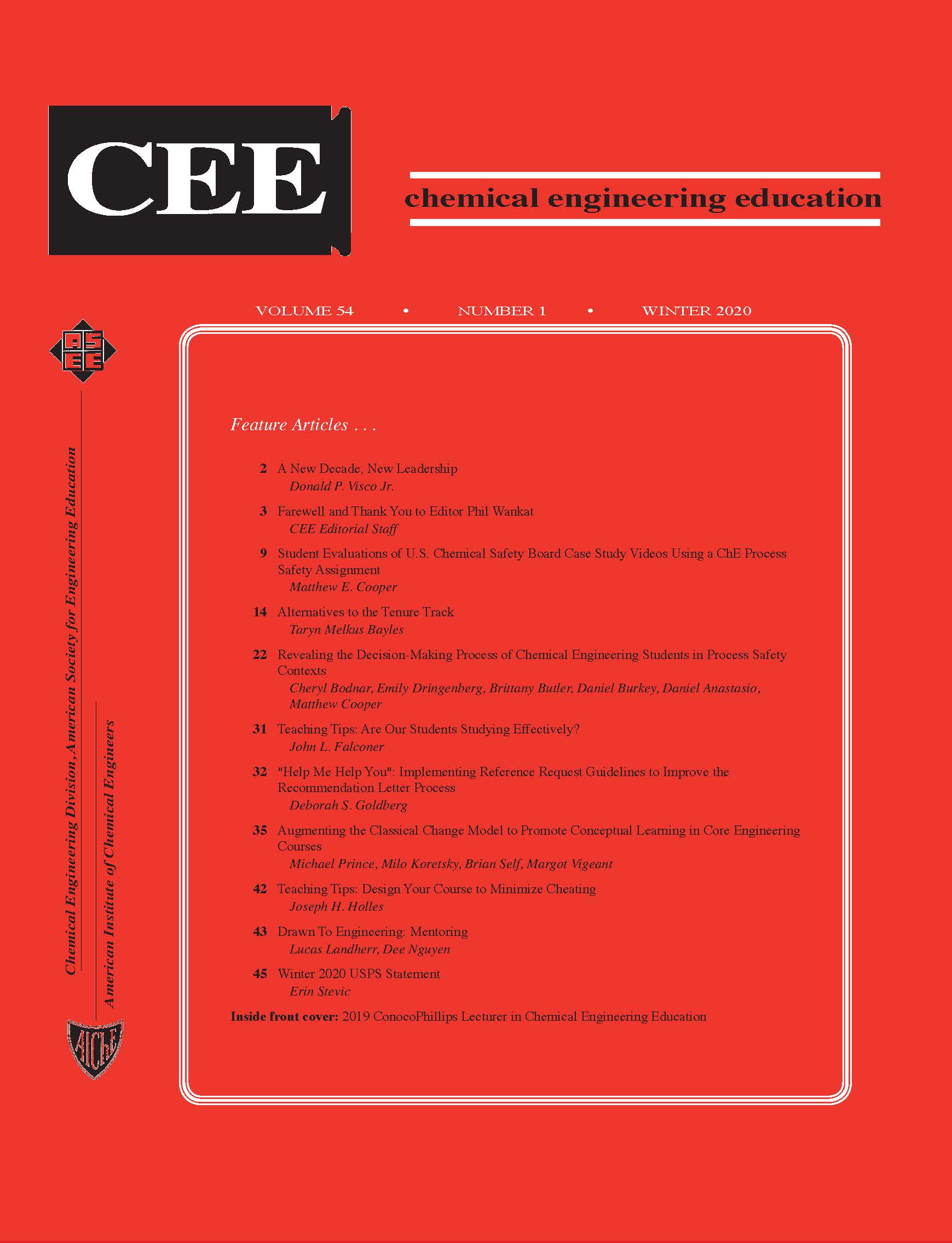Augmenting the Classical Change Model to Promote Conceptual Learning in Core Engineering Courses
Abstract
Cognitive conflict arises when students’ expectation about a physical situation, such as the relative temperatures of metal and cloth, are not experimentally verified. The paper reviews this approach as a tool for promoting conceptual learning in undergraduate engineering courses, through three case studies. These cases demonstrate that cognitive conflict can be a successful strategy for engineering instructors to support students’ conceptual learning in engineering as a first step to create a teachable moment.


